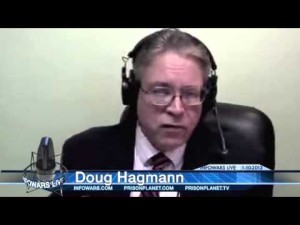The CEO of Assurant appeared on Bloomberg TV to explain why demand for his services is likely to increase: the chief executive of the mobile phone insurer said he expects a surge in demand as carriers charge customers more to replace their devices. “If you think back five years ago, you as a consumer didn’t know how much that phone cost, you thought it was free or close to free,” Assurant's Alan Colberg said Monday. “Now you’re paying $600, that’s a lot. So we’ve actually seen the attachment rate, or the number of people buying the product, going up a little bit in the last couple of years.”
He then proceeded to give Bloomberg his traditional sales pitch: Assurant is counting on growth at its business covering phones and appliances to help counter a decline in the segment that insures foreclosed homes for lenders. While improvement in the real estate market has limited the number of vacant homes, Colberg said there are still many cash-strapped consumers.
It is what he said next that caught our attention: “The reality is, half of Americans can’t afford to write a $500 check,” Colberg said. He spun that stunning statistic by saying that when US customers sign up for a cellular plan, they’re willing to buy protection in case “they lose that phone or something happens to it.”
In other words, there are millions of Americans who don't have $500 in the bank but are willing to dish out more than that on a cell phone, and then are stupid enough to make monthly payments that ultimately end up being far higher than $500 to protect their purchase... which they clearly couldn't afford in the first place.
That said, we decided to look into the CEO's claim about the woeful state of US finances. What we found is that according to a recent Bankrate survey of 1,000 adults, 57% of Americans don’t have enough cash to cover a mere $500 unexpected expense. Turns out the CEO was right. And while that may appear dire, it is a slight improvement from 2016, when 63% of U.S. residents said they wouldn’t be able to handle such an expense.
The survey's findings have shed light on how the so-called recovery of the past 8 years has skipped about half of the US population, which literally live paycheck to paycheck, and reflects a country in which many households continue to struggle with their basic finances more than seven years after the official end to the recession.
Putting the numbers in context: despite steady job growth during the Obama administration - which have been focused on minimum wage industries - wages have been predictably slow to recover, with the typical American household still earning 2.4% below what they brought home in 1999, when income peaked. Meanwhile, costs for essentials such as housing and child care have surged faster than the rate of inflation, placing stress on household budgets and making the accumulation of wealth, i.e., savings, impossible.
The bottom line: About four out of 10 Americans said they had enough in savings to cover a surprise $500 expense. Another 21% said they would rely on a credit card, while 20% said they’d cut back on other expenses. Another 11% said they’d turn to family or friends for the money.
What is even more striking is that among Americans who earn more than $75,000 per year - a third more than the typical U.S. household earns - almost half also said they wouldn’t be able to cover a $500 surprise expense. Ironically, Millennials represent the generation most equipped to handle an emergency cost, with 47 percent saying they have enough in savings to cover one.
The Bankrate survey findings echoed research published last year by the Federal Reserve, which found that 46% of respondents said they would be challenged to come up with even less, or $400, to cover an emergency expense, and would likely borrow or sell something to afford it. When the Fed asked what types of emergency expenses Americans had actually faced in the last year, more than one out of five cited a major unexpected medical expense. The average expense: $2,782, or almost seven times higher than the Fed’s hypothetical $400 surprise bill.
How do cell phones fit in all of this? When it comes to reducing spending, dining out is the first place where consumers would cut back, with 6 out of 10 respondents saying they would eat out less. What is the "stickiest" expense? According to Bankrate, the least likely expense to face the chopping block are mobile phone plans, with the survey finding that only 35% said they would cut back on their wireless plans to save money.
In other words, Americans would rather be hungry than cell phone free. In retrospect, it may turn out be that Assurant's CEO, whose business model is a big bet on human stupidity, just may have a goldmine on his hands.
Credit to Zero Hedge

